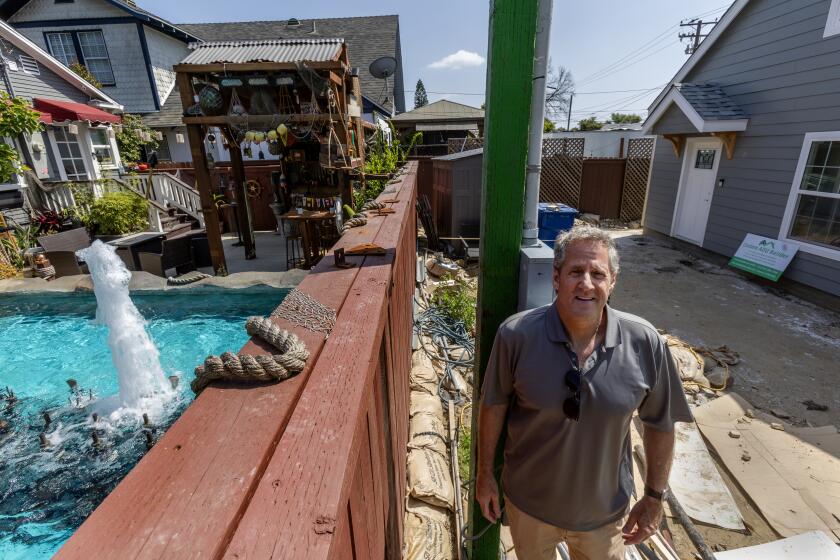New Rule Imperils Mining, Firms Say
Mining company executives said this week that the state’s last four open-pit gold mines could be driven out of business by a new state regulation requiring miners to refill pits once mining operations are halted.
One firm said it might sue to overturn rules adopted last week by the state Mining & Geology Board that require backfilling and flattening of mine waste piles at new open-pit metal mines. The rule requiring costly and time-consuming reclamation is being called the toughest restriction on open-pit mining in the country.
Because of the regulation, the Golden State will no longer be able to produce the official state mineral, mine operators said.
“This ends it,” said Adam Harper, manager of the California Mining Assn. “The cost of backfilling is such that it will simply make it not economically viable to mine any deposit in California. The state already has the strictest environmental laws you could hope for. This just raises the bar to a level that would all but ban gold mining.”
At least one company said it would explore filing a lawsuit to recover the cost of exploration and the loss of potential income.
There are only four open-pit gold mines still operating in the state, Harper said, down from the peak of about 12 during the 1980s. Two high-profile open-pit mines recently brought public protests: the Glamis mine in the state’s southeast corner and the CR Briggs mine exploration outside of Death Valley National Park.
One concern raised about the Glamis mine came from the Quechan Indian tribe, which said the mine would obliterate tribal cultural sites. The Briggs mine in Inyo County was opposed by park officials, who said new exploration would compromise Death Valley’s aesthetic character, and by conservation groups who said the mine could imperil big horn sheep habitat.
The Briggs exploration in the Panamint Mountains west of Death Valley was approved by the Bureau of Land Management last December, but will now not go forward, according to the company.
“It would be a waste of money to find something that cannot be mined,” said Richard De Voto, president of Colorado-based Canyon Resources, which operates the Briggs mine.
He said the company is considering suing.
“We have spent millions of dollars on land acquisition, maintenance and early drill holes. This law has wasted millions of dollars and 13 years of work. We’ve been deprived of the value of our property by this regulation.”
Christie Whiteside, of Great Basin Mine Watch, which monitors the mining industry, applauded the regulation.
“I think it’s a positive thing for California, from a reclamation standpoint,” she said.
More to Read
Start your day right
Sign up for Essential California for news, features and recommendations from the L.A. Times and beyond in your inbox six days a week.
You may occasionally receive promotional content from the Los Angeles Times.







